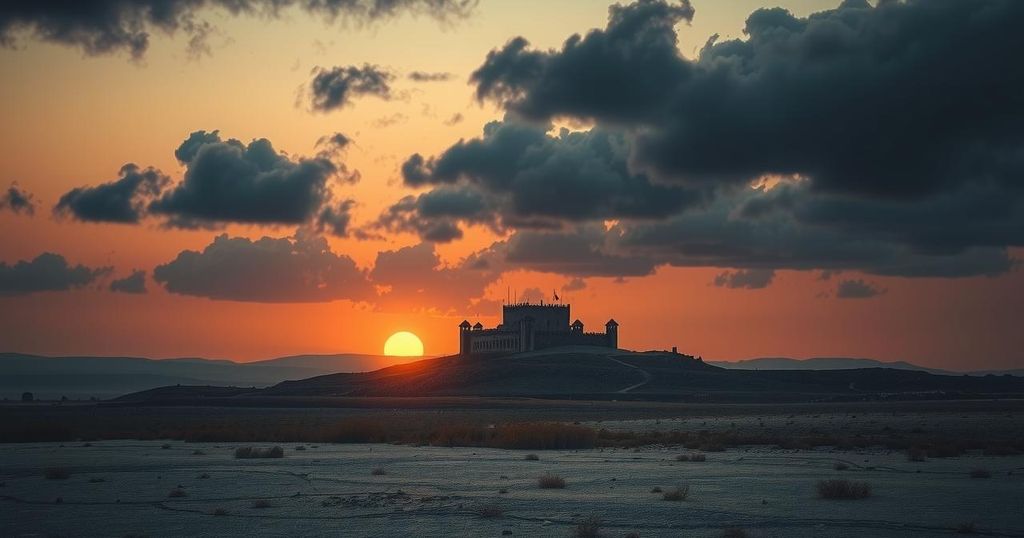The Sudanese army is advancing to recapture Khartoum from the RSF, marking significant territorial gains, particularly in the state of Gezira. As military successes increase, fears of violence against civilians heighten. Humanitarian crises intensify, with 100,000 people facing famine in the capital alone, and 12 million displaced throughout Sudan amid escalating violence and allegations of human rights abuses.
The Sudanese army is reportedly making significant strides in its efforts to reclaim Khartoum from the Rapid Support Forces (RSF) paramilitaries. Local residents indicate that the army has regained control over substantial areas of the capital, marking its most notable success in the past year. Reports from witnesses, including a doctor referred to as Mustafa, describe intense heavy clashes and the danger posed by stray ammunition in neighborhoods.
Key locations such as the mint, a facility crucial for currency printing, have fallen back into the hands of the army this week. Despite these gains, the RSF retains control over a significant portion of central Khartoum, while the army has established dominance over the broader tripartite capital region, which includes Omdurman and Bahri. Recently, the army celebrated the recapture of the strategically important Gezira state, bolstering their confidence in taking the capital.
Gen Abdel Fattah al-Burhan, the army leader and de facto ruler, claimed, “Very soon there will be no rebels in Khartoum”. This assertion speaks to the urgency of resolving the ongoing conflict as humanitarian conditions deteriorate. Current estimates indicate that more than 100,000 people in Khartoum alone are facing famine due to the warfare, with twelve million displaced across Sudan.
As the conflict between Gen Burhan and RSF leader Mohamed Hamdan Dagalo continues, both sides have been accused of grievous human rights violations, including genocide in Darfur. However, both the army and RSF vehemently deny these allegations. The recent army advances have been met with relief by many locals, contrasting with ongoing fears of RSF violence, which includes reported instances of murder and sexual assault against civilians.
While the army attributes its successes to a surge in recruitment and weapon acquisition, concerns remain about potential retaliatory actions against perceived collaborators. Mustafa emphasized the tension felt by ordinary citizens in Khartoum, stating that fear permeates social media discussions as many worry about retribution. Amir, a resident of Omdurman, voiced similar fears for his cousin caught in the crossfire, illustrating the blurred lines between cooperation for survival and genuine complicity.
In light of these uncertainties, residents such as Mustafa and Amir find themselves in a precarious situation, waiting for the outcomes of military advances and ongoing conflicts to unfold.
The unfolding situation in Sudan underscores pressing humanitarian crises exacerbated by continued military conflict and rampant violence against civilians. As the army seeks to reclaim Khartoum, fears persist regarding the repercussions for those perceived as collaborators. Aid agencies categorize this conflict as the world’s gravest humanitarian disaster, highlighting the urgent need for resolution and assistance for millions suffering amid the turmoil.
Original Source: www.bbc.com




